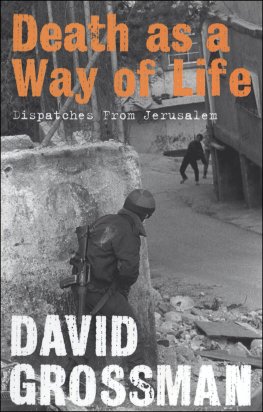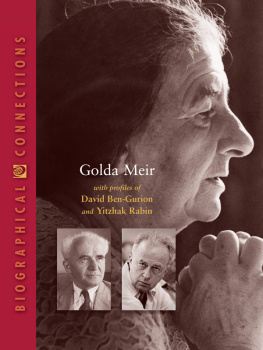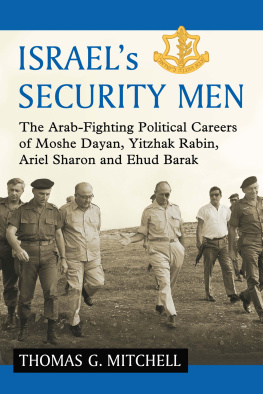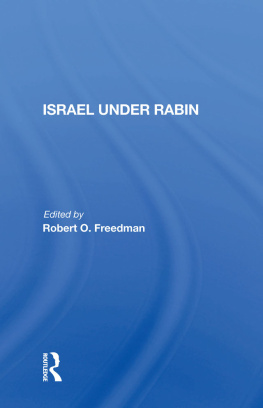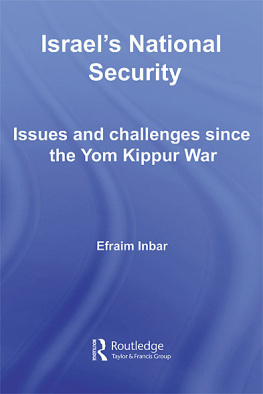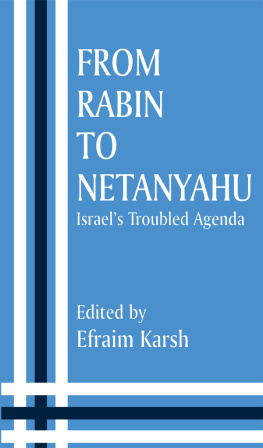Dan Ephron - Killing a King: The Assassination of Yitzhak Rabin and the Remaking of Israel
Here you can read online Dan Ephron - Killing a King: The Assassination of Yitzhak Rabin and the Remaking of Israel full text of the book (entire story) in english for free. Download pdf and epub, get meaning, cover and reviews about this ebook. year: 2015, publisher: W. W. Norton & Company, genre: Detective and thriller. Description of the work, (preface) as well as reviews are available. Best literature library LitArk.com created for fans of good reading and offers a wide selection of genres:
Romance novel
Science fiction
Adventure
Detective
Science
History
Home and family
Prose
Art
Politics
Computer
Non-fiction
Religion
Business
Children
Humor
Choose a favorite category and find really read worthwhile books. Enjoy immersion in the world of imagination, feel the emotions of the characters or learn something new for yourself, make an fascinating discovery.

- Book:Killing a King: The Assassination of Yitzhak Rabin and the Remaking of Israel
- Author:
- Publisher:W. W. Norton & Company
- Genre:
- Year:2015
- Rating:4 / 5
- Favourites:Add to favourites
- Your mark:
Killing a King: The Assassination of Yitzhak Rabin and the Remaking of Israel: summary, description and annotation
We offer to read an annotation, description, summary or preface (depends on what the author of the book "Killing a King: The Assassination of Yitzhak Rabin and the Remaking of Israel" wrote himself). If you haven't found the necessary information about the book — write in the comments, we will try to find it.
A riveting story about the murder that changed a nation: the assassination of Israeli Prime Minister Yitzhak Rabin.
The assassination of Israeli Prime Minister Yitzhak Rabin remains the single most consequential event in Israels recent history, and one that fundamentally altered the trajectory for both Israel and the Palestinians. Killing a King relates the parallel stories of Rabin and his stalker, Yigal Amir, over the two years leading up to the assassination, as one of them planned political deals he hoped would lead to peace, and the other plotted murder.
Dan Ephron, who reported from the Middle East for much of the past two decades, covered both the rally where Rabin was killed and the subsequent murder trial. He describes how Rabin, a former general who led the army in the Six-Day War of 1967, embraced his nemesis, Palestine Liberation Organization leader Yasser Arafat, and set about trying to resolve the twentieth centurys most vexing conflict. He recounts in agonizing detail how extremists on both sides undermined the peace process with ghastly violence. And he reconstructs the relentless scheming of Amir, a twenty-five-year-old law student and Jewish extremist who believed that Rabins peace effort amounted to a betrayal of Israel and the Jewish people. As Amir stalked Rabin over many months, the agency charged with safeguarding the Israeli leader missed key clues, overlooked intelligence reports, and then failed to protect him at the critical moment, exactly twenty years ago. It was the biggest security blunder in the agencys history.
Through the prism of the assassination, much about Israel today comes into focus, from the paralysis in peacemaking to the fraught relationship between current Prime Minister Benjamin Netanyahu and President Barack Obama. Based on Israeli police reports, interviews, confessions, and the cooperation of both Rabins and Amirs families, Killing a King is a tightly coiled narrative that reaches an inevitable, shattering conclusion. One cant help but wonder what Israel would look like today had Rabin lived.
16 pages of illustrationsDan Ephron: author's other books
Who wrote Killing a King: The Assassination of Yitzhak Rabin and the Remaking of Israel? Find out the surname, the name of the author of the book and a list of all author's works by series.

